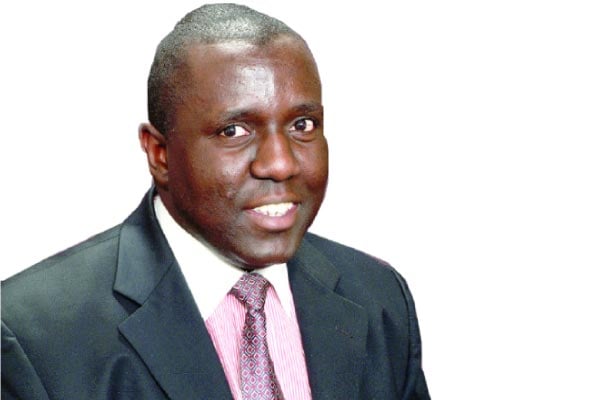Prime
Correcting past mistakes, task of the new Minister of Finance and Central Bank Governor?

Author: Mr Karoli Ssemogerere is an Attorney-at-Law and an Advocate.
What you need to know:
- Today, debt repayment and refinance is consuming nearly one quarter of the budget. In 1986, the government gave a 50 percent wage rise to its public servants to address inflation. In 2023, if the government gave in and implemented all its wage promises, the government would be flat bankrupt.
First oil” has advised sluggishness on measures to reform, revise the underperforming Ugandan economy. Government is reluctant to claw back defense, national security expenditures the only sector drawing more expenditure year after year on account of rising rebel threats in the West, cool relations with some of her other EAC neighbors and volatility in South Sudan.
In terms of cash flows, Uganda registered a small surplus in December meeting most of its bills. The IMF mission approved a final release from the Covid catastrophic fund with caution noting a collapse in purchasing power, the exchange rate remains stagnant partly because of this, threadbare import reserves etc.
In January, there is relief at the pump, wholesale prices have fallen faster than retail prices; Unleaded Regular Petrol [PMS] fell highs of Shs 6500 to under UShs5000. Market leaders Total and Shell charge an extra margin for an additive to their product that moderates fuel consumption. Surprisingly AGO is now higher than PMS, as refineries retreat from heavy fuels on account of lower global demand.
Germany, one of the last big diesel markets, has finally embraced full electric vehicles, and yes the Mercedes Benz will move without the roar in its belly.
Prof. Ponsiano Serumaga Mulema, a Professor of Commerce and Economics read NRM’s first budget speech on August 23rd, 1986. In his speech he advocated a mixed economy, noting that the economic mismanagement of the country had had the effect of narrowing Uganda’s export base so much to just coffee.
In 1985, at the height of the internal insurgency, Uganda exported $380 million worth of coffee.
In 1986, Uganda exported $400 million worth of coffee. Of course, the International Coffee Organisation agreements later collapsed. Coffee gave Uganda a lot of comfort. Ugandans shifted from production to commerce and services.
Uganda, partly cushioned by coffee receipts, retreated into the domestic banking system to borrow.
Today, debt repayment and refinance is consuming nearly one quarter of the budget. In 1986, the government gave a 50 percent wage rise to its public servants to address inflation. In 2023, if the government gave in and implemented all its wage promises, the government would be flat bankrupt.
First oil is much smaller than it sounds. Uganda is projected to produce just 40,000 barrels of oil per day or 1.2 million barrels of oil per month. Brent, the oil pricing benchmark, has fallen from $139 bbl at the onset of the Ukraine War to as low as $75 bbl. In January partly on the back of recovery in China, Brent is hovering around $84 bbl. Information about the production sharing agreements remains scanty. At the time Uganda negotiated these PSAs Brent was at $120-135 bbl. The US Energy Administration forecasts the long-term average of US oil to be about $60 bbl 2023 onwards.
Uganda’s crude [heavy sulphur rich] is likely to discount heavily against Brent, earning Uganda a gross in the range of $800 million to $1 billion annually. So will coffee if it reaches its target of 20 million bags, already at 7 million bags, coffee receipts are $550 million. Out of our gross oil discharge, the pipeline tariffs alone will be between $12-15 a bbl. Our Tanzanian friends have been generous in this regard. In Sudan war broke out in 2012 over the pipeline discharge, with Sudan milking the best deal from transiting South Sudan oil through the pipeline.
But we must remember, Prof Mulema’s diagnosis, the emphasis of our economy during the war shifted to commerce and services from production. High energy costs and failure to lay a firm base for industrial growth is a problem. Most of this oil; for industrial use should as a priority be targeted to boost agriculture; irrigation; synthetic fertilisers etc.
Prof. Mulema had a strange pronunciation of the word, “economy” and “economics”, he leaned into the lectern, and told a hushed NRC; “Mr. Chairman, the economy of Uganda has been troubled for the last 15 years by economic mismanagement. ……It is impossible to assess the extent of this mismanagement in statistical terms because the entire administrative system had almost ceased to function.” Having missed the middle income train, Uganda’s leaders must revert to this plain, ordinary, non-emotional description of the state of our economy.
Mr Ssemogerere is an Attorney-At-Law and an Advocate.




